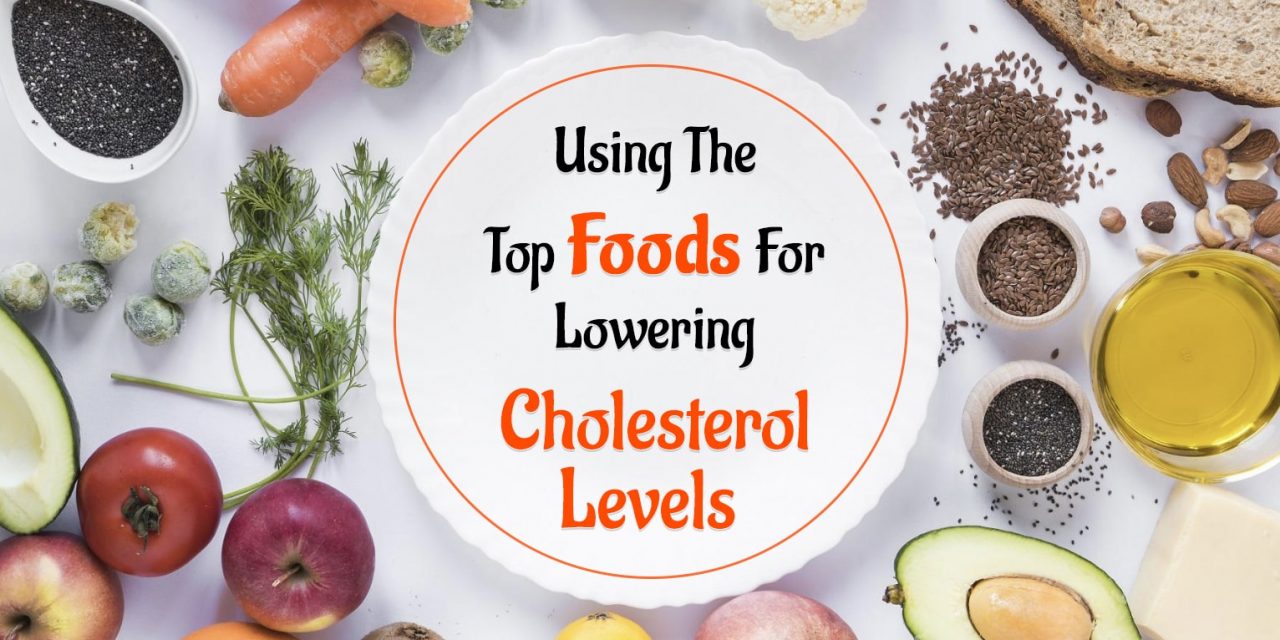Using The 12 Top Foods For Lowering Cholesterol Levels
Cholesterol is an essential building block for the production of hormones, cellular membranes, and digestive acids. However, the massive majority of us eat foods with significantly more cholesterol than we need. Eating a healthy diet can significantly reduce and manage cholesterol levels in the blood, reducing heart disease risk.
Cholesterol is a smooth, glistening, fat-like substance found in your body’s cells and bloodstream. Your body naturally produces cholesterol levels, and the rest comes from the food you eat. According to the American Heart Association, your body makes all the cholesterol you require and circulates it through your bloodstream. Cholesterol found the Structure of all cells in your body. It helps digest fat and produces vitamin D and hormones such as testosterone and estrogen.
Two Types are in the Body:
Good Cholesterol Levels and Bad cholesterol levels.
Bad Cholesterol is known as LDL cholesterol, and too much of it in the body can increase heart disease risk, says Paul McIntyre, a Marshfield Clinic registered dietitian. It can deposit higher LDL cholesterol levels in the arteries, which narrows them and increases heart disease risk.
Cholesterol also can come from foods we eat, so maintaining your heart to the right foods is a crucial way to lower harmful cholesterol levels. There’s adequate proof that following a heart-healthy diet can enhance your blood cholesterol and heart health. Find out which foods are most excellent at helping to lower your cholesterol.
Cholesterol is a steroid lipid (fat) present in the blood, necessary for the proper working of cell membranes, vitamin D production, and specific hormones. High cholesterol levels are a risk element for heart illness and stroke. Therefore, cholesterol-lowering foods are a significant addition to anyone’s diet plan for excellent health and preventative control.
Cholesterol-lowering foods include almonds, tomatoes, soy products, garlic, almonds, flaxseeds, walnuts, oatmeal, and beans and legumes. Below is a complete list of foods that lower bad LDL cholesterol while giving the good HDL cholesterol mostly unaffected.
Almonds:
Almonds are pretty hardworking nuts for lowering your cholesterol. First, it is rich in unsaturated fats that help promote normal HDL cholesterol while lowering unhealthy LDL. Second, these fats also help make LDL cholesterol less possible to oxidize, and it is a beautiful thing because when LDL oxidizes, it’s more likely to gunk up your arteries and cut blood flow to the heart. Snack away. But monitor portion size. Almonds are rich in calories, and all of you need two pairs a day to benefit.
Tomatoes:
Include lycopene-rich tomato vegetables in your diet, a regular day for a few weeks, and you may hit your harmful LDL cholesterol levels down by as much as 10 percent, according to a new study. Investigators think the lycopene in tomatoes inhibits LDL production while maintaining break down this artery-clogging fat. Fildena 100mg and Super P Force is a best remedy to improve erectile dysfunction issues in men.
You must consume at least 25 milligrams of lycopene a day for cholesterol benefits. That’s about a half cup of tomato sauce. Bring on the marinara!
Walnut:
Speaking of oatmeal toppings, you can also add some walnuts or almonds. Both destroy bad cholesterol with their polyunsaturated fats, but walnuts mainly keep your blood vessels healthy, says Peeke. Just keep your portion to about a dozen nuts.
Soy products:
Soy products combine tofu, soy milk, soybeans, and edamame beans. Some proof shows that regularly eating soy products can slightly decrease ‘bad’ LDL cholesterol and triglycerides. Choose soy products close to how they found it in nature, like soybeans, plain unsweetened soy milk, and unflavoured tofu.
Strawberries:
Polyphenols, which are plant-based compounds that naturally help improve your cardiovascular system, found in large amounts in strawberries. Research has associated strawberries with a lower risk of heart disease because of their great polyphenol counts.
Dark Leafy Vegetables:
Leafy vegetables like kale, cabbage, and spinach are the best answer to eat to lower cholesterol normally. These vegetables include soluble fibers and carotenoids like lutein. Lutein and other carotenoids work as antioxidants connected with free radicals in the bloodstream that cause artery-clogging, such as bad cholesterol. They also aid in binding with bile juices, allowing the body to excrete more cholesterol.
Onions:
Onion includes a constituent called quercetin, a potent antioxidant; this can inhibit free radicals’ damaging effects on human tissues. Researchers have linked quercetin of onions with raised HDL cholesterol levels and low levels of LDL cholesterol. But that’s not all. Onions can help stop hair loss too.
Oatmeal:
If you’re searching for a straightforward way to improve your cholesterol, include a bowl of oatmeal in your daily diet. The soluble fiber in oatmeal helps to “soak up” cholesterol and move it through your body without being absorbed. Whether you choose oatmeal for breakfast or just a hasty snack, it’s the right choice when you have high cholesterol.
Olive Oil:
Oil consumption is linking with the heart’s health. You will find several oil brands claiming to promote your heart’s health.
However, olive oil is the best out there for excellent heart health. Extra fresh olive oil includes Polyphenols, which promote cholesterol efflux and improve HDL functionality. Thus, to keep cardiovascular diseases away, extra virgin olive oil should be a part of your diet.
Avocado:
Avocados are high in monounsaturated fat and rich in fiber. Study shows that changing saturated fat or carbohydrates with unsaturated fat can lower LDL (bad) cholesterol level and increase HDL (good) cholesterol level. It has also connected monounsaturated fat to reduced inflammation. Try avocado as a sprinkle on toast, with eggs, or in a smoothie. Nuts and olive oil are also excellent sources of monounsaturated fat.
Flaxseed:
Commonly used in Mediterranean cuisine, flaxseed can similarly help lower cholesterol levels to fish oil. Flaxseed is rich in omega-3 fatty acids, so it is an excellent alternative for vegetarians. It can help with digestion, given that it contains the right amount of dietary fiber. Pick Super Vidalista & Fildena 50 is an excellent medicine treat ED.
Beans and legumes:
Lentils beans and black beans and chickpeas — oh, my! Beans and legumes are other excellent sources of cholesterol-friendly soluble fiber.
A study of 26 studies found that eating just 1/2 cup could help lower LDL cholesterol by an average of 6.6 mg/DL, improving your LDL-to-HDL ratio.



















